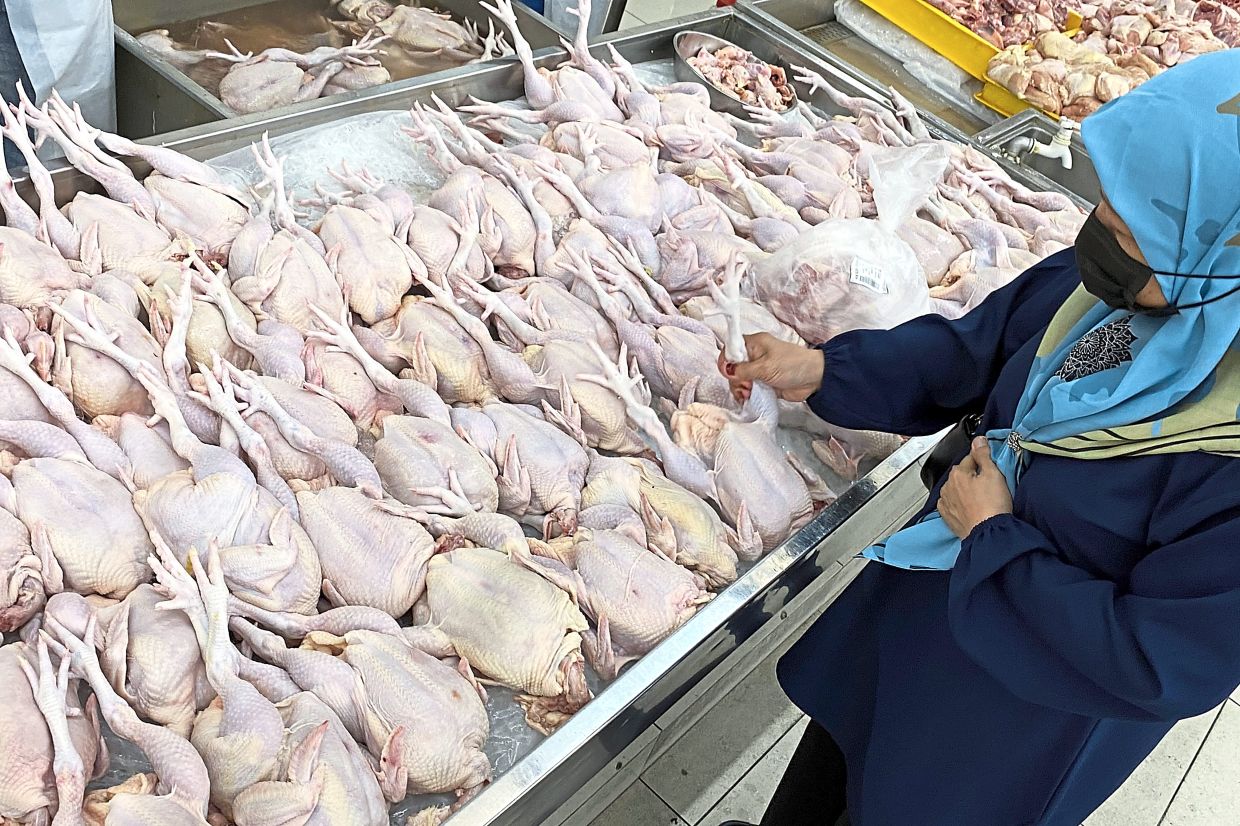
Bound to rise: Malaysians will have to pay more for food because of the ongoing Covid-19 pandemic, the impact of climate change, health-related shocks, and conflicts which disrupt global supplies, including food. — Filepic/The Star
IT’S already been a month since the war broke out in Ukraine. Most countries would have thought that it would be a swift invasion by Russia, but it looks like a prolonged battle now.
The continuing conflict means that it will take a greater toll on Malaysia – and the rest of the world – even though Ukraine is over 8,200km away.
If the strife escalates and damages global trade and economic recovery, it will stunt Malaysia’s growth. For starters, we’ve already been paying more for Ron 97 petrol over the past few months, even before the Russian onslaught.
The rising price of oil may have helped to increase the government’s revenue since we’re an oil exporter.
We could be earning around RM1bil a month in extra revenue compared with April 2020 on average.
Quoting the Asean+3 Macro-economic Research Office, every US$1 (RM4.20) increase in oil price contributes RM646mil to Malaysia’s gross domestic product (GDP) and RM339mil to government revenue.
The report also said that, overall, the US$75 (RM316) increase from April 2020 to now may have added RM48.5bil to GDP and RM25.4bil to government revenue in that span of 22 months.
But the additional income has also been channelled towards fuel subsidies in ensuring a stable price for Ron 95 and diesel. The extra money, unfortunately, will also go to Covid-19 expenditure.
However, the hike in oil price will not aid in stifling inflation and keeping the cost of goods down.
Farmers have found that they need to set aside more for fertilisers. Supplies are also slowing down.
It’s not just for oil palm growers but also for vegetable and fruit growers. Naturally, the cost will be borne by consumers.
If farmers cut down on fertilisers, these cash crops would still grow but we could see smaller cabbages and watermelons.
The price of essential materials for fertilisers, such as nitrogen, phosphate and potassium, has shot up.
It’s the same with urea, intensively used for nitrogen fertiliser, which was priced at RM1,300 per tonne in early January but is now RM4,000 per tonne.
China, for example, which exports urea and ammonia, has cut down on exports drastically to ensure it has enough for itself.
Chicken feed will, no doubt, be one of the most expensive items as the surge in the price of grain is now evident. It simply means the cost of poultry will spike, so eating chicken rice or fried chicken with nasi kandar will be costlier at some point, or the portions could be smaller.
What happens in Europe will also affect Malaysia. For example, many European countries, for all their rhetoric, still depend on Russian gas. They can’t produce any manufacturing parts without gas. It’s as simple as that.
Russia supplies over 60% of Germany’s natural gas requirement. It also exports to Europe 50% of the continent’s neon needs, which is necessary for the semiconductor industry.
And don’t forget, there is also titanium, of which 30% of the world’s supply comes from Russia, and it is a crucial building block for the aerospace industry, including the construction of planes in Europe and the United States.
When it comes to edible oils, Ukraine provides most of the world’s sunflower oil demand. With that nation being Ground Zero, its entire sunflower oil supply has been wiped out.
If Europe stops buying from Russia, sunflower oil production will come to a halt. For sure, Britons will find cooking their fish and chips a more expensive experience.
Ukraine is the world’s largest producer and exporter of sunflower oil, with a market share of 47% of global exports while Russia’s share is 29.9%, reportedly accounting for 60% of global production in 2020 and 2021.
Russia is the world’s largest exporter of grains while Ukraine is responsible for 16% of global corn export.
No doubt, the sharp increase in crude palm oil prices will offset the hikes in fertiliser costs with CPO topping RM8,000 per tonne for the first time early this month.
Naturally, palm oil and soya oil will gain from the conflict, and beneficiaries of that include Malaysia and Indonesia.
But we have yet to prioritise food security, even after spending RM55.5bil on food products in 2020 – compared with RM33.8bil in exports – to meet consumer demand.
As an import-dependent country, food security should be on the minds of our leaders. But how many of us have seen them deliberate this?
Non-essential issues, which warrant no immediate action, seem to be of greater interest to these politicians.
Malaysians will have to pay more for food because of the ongoing Covid-19 pandemic, the impact of climate change, health-related shocks, and conflicts which disrupt global supplies, including food.
It’s frightening to see our short-sightedness. We treat our rivers like sewers, we cut down our trees, and we don’t even produce enough food.
In the end, the B50 – the poorest of Malaysians – will be the hardest hit. It’s high time we woke up to this debilitating reality.





